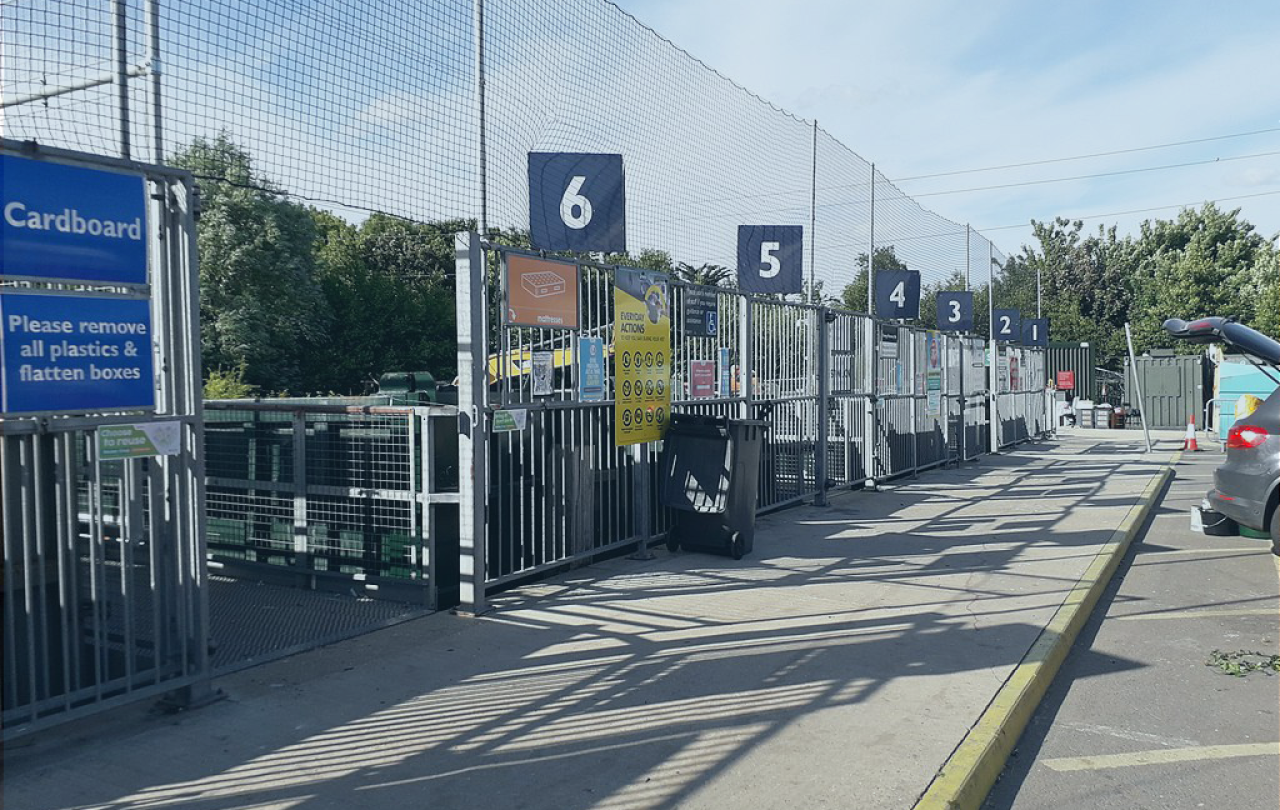
I recently moved house. A process which rates highly on the stress-ometer. Not least because you see your life (as represented by the stuff of your life) packed up in boxes and taken away from your home to be reassembled somewhere else, in a strange ghost-version of your home.
To be organised, before we moved, I arranged for a clearance company to come and do the unimaginable – clear the loft. We had lived in our home for 13 years. My children had been born and grown up there. We had grown up as parents and as a family. To see all the plastic trophies of our children’s early lives being taken away to be rehoused was almost like seeing members of the family being taken away to be adopted into other families. But at the end of that process, I had thought that when we moved into the new house, we wouldn’t have too much by way of clutter. I was wrong.
And so, my relationship with the nearby Household Recycling Centre began. I have become almost obsessed with my weekly visit to the tip, which is located just outside town. The sense of catharsis and purging is verging on addictive.
At the tip, there is a range of different waste bins – wood, metal, large appliances etc – and a wonderfully ambiguous catch all, everything-else-that-can’t-be-recycled bin. There are places to leave what can be upcycled, there are places to leave dangerous chemicals. The tip is a welcoming place for those of us who recognise that we want to get rid of stuff that is taking up space in our life/home that isn’t helping us live well. It’s a place where a person is encouraged to acknowledge that we don’t need to hold onto what brought us joy in the past but only gets in the way in the present. What is now harmful to us can be taken away and dealt with by professionals.
Festering shame is one of the greatest poisons, one of the greatest risks to the flourishing of the human soul. It needs to be purged, not hidden.
Today, we are often told “never apologise”, “have no regrets”. But that’s really hard. Because most of us know, in some place in our being, that we’ve said, done or thought things that aren’t good. And that knowledge elicits feelings of guilt and shame. So what do we do with that? Ignoring and suppressing those feelings doesn’t mean they go away, instead they fester. Festering shame is one of the greatest poisons, one of the greatest risks to the flourishing of the human soul. It needs to be purged, not hidden.
And so, I return to the dump. At the dump, you aren’t judged for what you bring. There is a shared respect amongst visitors to the dump. Almost a greater respect for the person with the fullest car or the most fetid waste. Where can I go to leave my rotting conscience?
There is a spiritual discipline akin to my weekly tip trip. The discipline of confession. Confession is a spiritual gift that helps us unload the sometimes debilitating cargo of our psychological burdens. In the Christian tradition, the practice of confession can be a shared experience as part of a congregational worship service. Or it can be a more private moment, shared with a priest or trusted Christian friend.
Or confession can be done just me and God. Just you and God. We can honestly bring our mistakes, past or present, and be set free by God’s forgiveness. It doesn’t have to be in posh language, it just needs to be honest. We can just say sorry. We can say we just really wish we hadn’t done/said/thought … and we want to repent. Repentance means turning around and going a different way – so we can ask God to help us leave something behind, and learn how to go a different way.
Jesus invites you and me to bring our rubbish to the greatest spiritual waste centre, located outside town, outside time, at the foot of a cross on Calvary. His physical death was terrible. But the spiritual death was far more painful. He acted like a magnet to all the darkness of humanity and drew it into himself. So, out of love, he became the dumping ground for all that is worst about humanity. And it crushed him. But, Christians believe, he rose again three days later. He came out the other side and invites us to follow him there, too, into the light of forgiveness and freedom.
So next time I’m loading up my car with more (more!) cardboard and a few bulky leftovers from yesteryear, I’ll try to remember to do business with my burden of shame. Which we can dump at the cross of Christ, knowing that it will be dealt with. That it has been dealt with. And we can leave with an empty car. Lighter, hopeful, clearer-headed. Free





